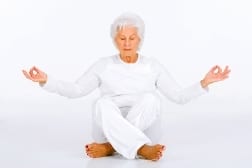Studies show exercise is more important than we think
Monash conducted a 12 year study of more than 110,000 people, focusing on measurements of their BMI with regard to their overall health. Also participating were researchers from the National Health Research Institutes and the National Defense Medical Centre in Taiwan. The results were published recently in the Asia Pacific Journal of Clinical Nutrition.
Emeritus Professor and co-author Mark Wahlqvist of Monash University’s Department of Epidemiology and Preventive Medicine said the study drew attention to a growing need to recognize paradoxes within clinical and public healthcare systems. “We found that especially in the elderly, medical expenditure continues to rise with increasing BMI, but there was little relationship with how long a person lived,” Professor Wahlqvist said. One reason for this greater expenditure is that, with age, excess weight is increasingly accompanied by loss of muscle and bone, each with its own health consequences.
What can be done to reduce BMI?
We are all much more knowledgeable about how much exercise affects overall health, yet this information hasn’t always been enough to motivate older people. One thing that may discourage people is the belief that they will have to start exercising vigorously on a daily basis. A new study by the National Cancer Institute on physical activity was recently published by PLoS Medicine, monitoring 650,000 participants over between 21 and 90, but it focused on individuals over age 40 and excluded people who were underweight. Researchers found that even modest exercise will increase life expectancy regardless of how much someone weighs. That’s right; even if you are morbidly obese modest exercise will help you live longer.
Contrary to what most of the healthcare community believes, obesity is less of a crucial factor in determining life expectancy than physical activity. This news should encourage older Americans to grab a water bottle and go out for a walk, because there is less pressure to lose weight than there is to get active. Participants in the study who were “Class I Obese” yet physically active lived an average of 3.1 years longer than participants who maintained a normal weight without physical activity. This correlates with another report from 2012 that says excessive sitting is unhealthy.
Active adults live longer
The study compares physical activity levels and BMI, and shows that the years of life expectancy lost after age 40 are reduced when a person is physically active, regardless of their weight class. The article states that “participation in even a low level of leisure time physical activity of moderate to vigorous intensity was associated with reduced risk of mortality during follow-up relative to no such activity. A low level of physical activity is defined as up to 75 minutes of brisk walking per week.
According to the World Health Organization (WHO), adults should get at least 150 minutes of moderate to vigorous-intensity exercise each week. The benefit to life expectancy is 3.4 years for people who get between 150 and 300 minutes of exercise per week. Above that, life expectancy levels are extended by an average of 4.2 years.
Never too old to start exercising
Whether you’re just hitting middle age or well into your 80s, the benefits of exercise can be felt almost immediately. Some people prefer walking outdoors while others find it easier to workout in a gym. The most important things to remember when starting any exercise program are stretching and hydration. Taking the time to warm up, stretch and cool down whenever you exercise will prevent many injuries and keep you feeling limber. To stay hydrated, always carry a water bottle on long walks or trips to the gym. You may be surprised at how much longer you can exercise when you are fully stretched and hydrated.
Photo Courtesy of Ambro / FreeDigitalPhotos.net





